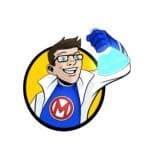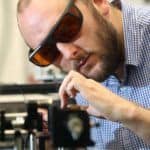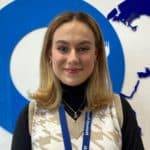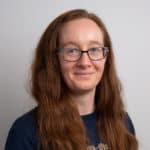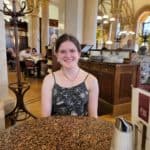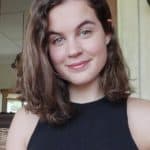Profile
Chiara Panzi
-
About Me:
I am a 28-years-old PhD student. When I am not in the laboratory, I love keeping myself busy with several different activities…my life is much more than just a lab!! I like reading, going to the gym, hiking, cycling and exploring the place where I live. I also practice few sports: ice figure skating and acroyoga!
(she/her) -
Read more
I recently moved to Basel in Switzerland for 1 year internship in industry, but I used to live in north London in a shared house with other 2 people. I spend most of my time outside the flat, either in the laboratory or walking/cycling around the city and practising sports.
I really loved exploring the many hidden spots of London and its wonderful parks. All that green right in the middle of the city makes me almost feel as if I am at home back in Italy. I grew up in a small village in the mountains behind Genoa (on the north-west coast of Italy), and I am used to spend basically all my free time in the woods or mountains.
As a proper Italian, I love coffee, pizza and ice creams. During the lockdown in March 2020 I discovered I have a hidden baker in me: I can now make an almost perfect Neapolitan style pizza and a wonderful focaccia (typical of Genoa)!!
I am a really active person and I like training at the gym (when possible) or at home/in the park. I also recently started doing some acroyoga/partner acrobatics with my partner!
As a teenager I practiced roller figure skating and I am now getting lessons on the ice. Last but not least, I also rediscovered an old hobby: pyrography!
-
My pronouns are:
She/her
-
My Work:
One of Alzheimer’s diseases (AD) hallmarks is the tau protein accumulation and spreading in the brain, causing neuronal death and impairments in AD patients. I want to understand how this protein spread in the brain.
-
Read more
I am doing research in the neuroscience field, in particularly I am now interested in the molecular mechanisms that cause Alzheimer’s Disease (AD). In my PhD project I want to understand how the protein tau can travel along connected neurons in the brain. Tau is a protein that is normally found in our neurons bound to microtubules (part of the neuronal “skeleton”) and also in the cytosol (the liquid filling up our cells). In AD this protein starts to detach fro yhe microtubules and accumulates in the cytosol, forming agglomerates known as neurofibrillary tangles. There are evidences showing that pathologic tau can trave across connected neurons and brain areas, but it is unclear how that is possible.
I am using primary neuronal cultures of hippocampal neuron, i.e. neurons taken from the brain of mouse embryos, and I culture them in specific devices that enable me to separate the cell body of neurons from their axons. To study the human tau in these mouse neurons, I am using a genetic vector to make them express the human protein.
I then culture the neurons for a couple of weeks and then treat the axons with some agents that can block different mechanisms of exocytosis. The exocytosis is the active process allowing the passage of molecules from within the cell to the extracellular space. I will then to see if there is tau released by the neurons before and after the treatment.
A really exciting part of my work is the confocal imaging: with a really powerful microscope that is using lasers as source of light, I can clearly see different molecules and parts of the neurons. This is happening thanks to the use of different antibodies that can recognise different portions and proteins in the cells and then other antibodies connected to a fluorophore. These fluorophores can emit light when they are excited or hit by another source of light (in our case, the lasers) and the confocal microscope is able to capture their light. As you can see in the image below, neurons can be really beautiful!! These are primary cortical neurons, so neurons comig from the brain cortex, and the light blue colour is indicating the microtubules, their skeleton.
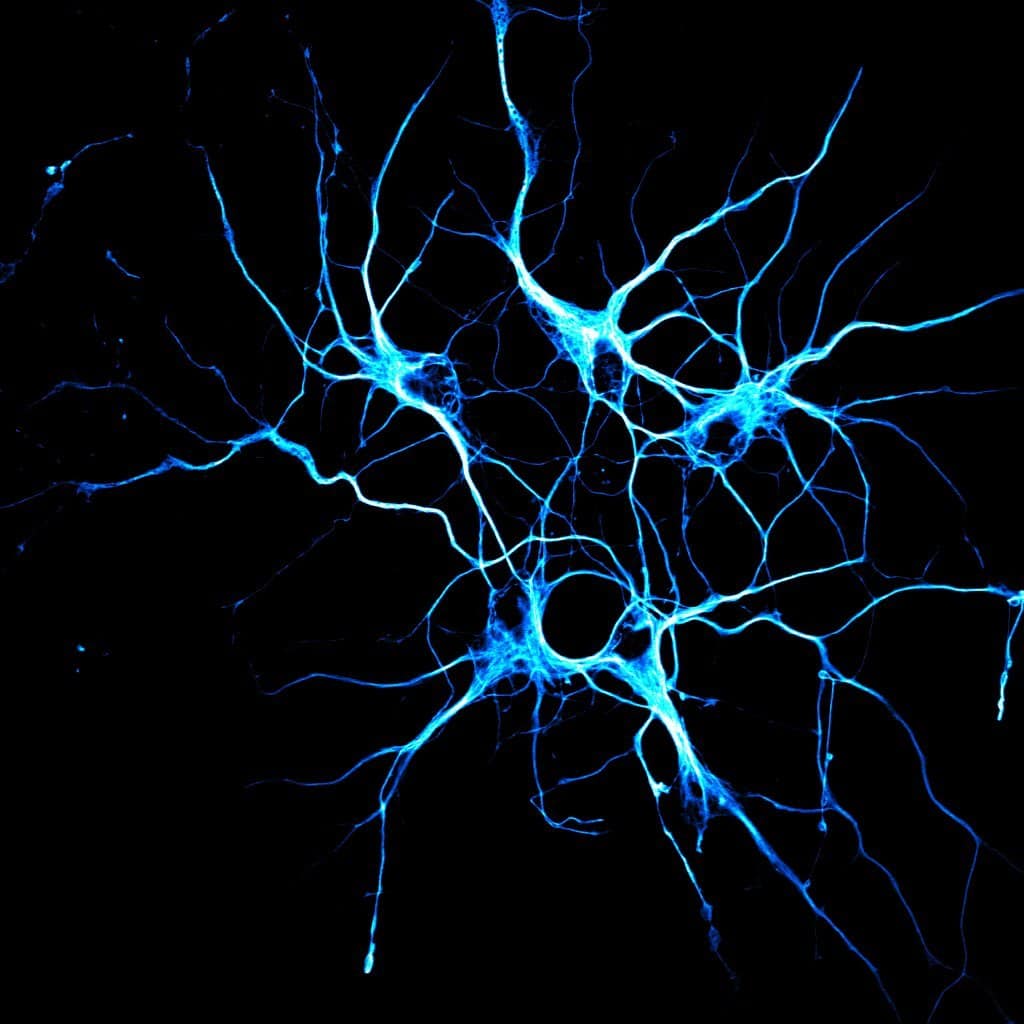
The other really cool thing of confocal imaging, is that you can process your images afterwards with different programs and change the colours of the different lasers as you please!
-
My Typical Day:
I wake up early in the morning, I have some light breakfast, jump on my bike and cycle to my lab in London! There, I do my experiments with my neuronal cells, I drink coffee, chat with colleagues and work.
At home in the late afternoon, I cannot miss some good exercise, have a light dinner and then I read some good books before bedtime. -
Read more
I wake up at 7am, have some light breakfast, pack my backpack and jump on my bike to go to the lab. Then I check my neuronal cells, maybe I treat them if they are ready and I start my experiments! At 11am, I cannot miss my coffee break with my colleagues and some nice chat. I do some other work/ experiments and, if the weather is good, head to the park for lunch (usually around 1pm).
I then do some exercise in the evening, either in my room, at the gym, in the ice rink or in a gymnastics centre (that is my way to relax!!). I cannot miss it: it helps me to recharge and empty my mind from the problems of the day!
I the have a light dinner (I have problem sleeping if I eat to much 🙁 ). Depending on the day, I can have some really long videocalls with my friend all across Europe and read some nice books before bedtime.
-
What I'd do with the prize money:
I would like to organise small events where the publicwill be able to do small experiments to understand how our nervous system works!
-
Education:
I am from Italy, so my early education story will probably not help you much, but I can show you that it is also possible to achieve your dreams even if that means you have to move from your country and enter into a pretty different education system!
- High school: I went to what it can be defined a scientific high school (Liceo Scientifico Gian Domenico Cassini) in Genoa, where the main focus was on scientific subjects as maths, physics, biology and chemistry. I had to take all the classes and our final exams involved all the subject studied across 5 years.
- University of Genoa (Italy): Bachelor’s Degree in Biotechnology (3 years), with a research thesis done in a neuroscience laboratory at the Italian Institute of Technology (Genoa).
- University of Pisa (Italy): Master’s Degree in Neuroscience (2 years), where I studied the nervous system and the techniques used to study it. I did the internship for the thesis in two laboratories: Institute of Neurology (UCL, London) and Institute of Neuroscience (CNR, Pisa).
- University College London: PhD in Neuroscience (ongoing)
-
Qualifications:
- High school: I went to a scientific high school, because I already knew from middle school that I was passionate for science. I still did not know what I precisely liked in science, but I was extremely fascinated by the nature and also by the fact that some numbers and equations could described the world. Towards the end of the high school, when I was 17/18 years old, I still did not have a clear idea of what I wanted. I was a good student in all the subjects, but I what I liked the most were biology and chemistry classes. What really helped me understand what I wanted for my future were some small internships the school was organising in collaboration with the university. I did one internship in the Chemistry department and then I went in the Biology department. There, I understood that biology in general was the subject I wanted to deepen in my future studies. However, I did not want to do “just” biology, but something with a more practical application. I chose a bachelor in Biotechnology because of its mix of theoretical biology and applied biology, with days spent in the lab even during the classes.
- University of Genoa (Italy): Bachelor’s Degree in Biotechnology (3 years). The bachelor really helped me in deepen my knowledge in biology and lab techniques. The greatest thing was that I had the opportunity to really do some science with my own hands. Every classes had also a part where the professors were taking us in the laboratory to test and see with our eyes what they were explaining before. These hands-on activities helped me in understanding that I was really enjoying the experimental part. What triggered my interest for neuroscience was a class in neurophysiology. The professor was such an enthusiastic and passionate person that I could not avoid being fascinate by it. I then decided to do my 1-year internship for the thesis preparation in a neuroscience laboratory, where I completely fell in love with the nervous system.
- University of Pisa (Italy): Master’s Degree in Neuroscience (2 years). Here I deepen my knowledge on the nervous system and I had the opportunity to come to London for half of my research period for my thesis. I was a bit scared at the beginning, because I was not so fluent in English and I found myself alone in a huge foreign city, but then I started meeting people, to work in the lab and explore around. It was totally worth it. After I saw how scientific labs work both in Italy and in London, I decided to try to apply to PhD positions in the UK as my first choice and in Italy too.
- University College London: PhD in Neuroscience (ongoing). I got a PhD studentship and I started my PhD on March 2020 (perfect time!!). After few months of stop because of the lockdown, I finally had the chance to properly work in the lab on my project and I find it exciting!
-
Work History:
- Barman
- Private “teacher”/tutor for students struggling with Maths and Latin
- Scientific explainer in a scientific festival in Genoa
- Research assistant in a neuroscience laboratory
- Intern in a research laboratory at Roche in Switzerland
-
Current Job:
I am a PhD student at the Institute of Neurology at UCL. I am working on a project where I am trying to understand how tau, a protein that is found to be responsible of the progression of neurodegenerative diseases as Alzheimer’s disease. I am using primary neuronal cells to study the mechanisms by which tau is able to spread in the nervous system and cause the pathology.
-
My Interview
-
How would you describe yourself in 3 words?
cycling baker neuroscientist
What did you want to be after you left school?
a researcher
Were you ever in trouble at school?
No
If you weren't doing this job, what would you choose instead?
Teacher
Who is your favourite singer or band?
The Script
What's your favourite food?
Pizza!
If you had 3 wishes for yourself what would they be? - be honest!
1) Teleportation; 2) be a great figure skater;; 3) super eyesight
Tell us a joke.
What treat is never on time? Choco-late
-

